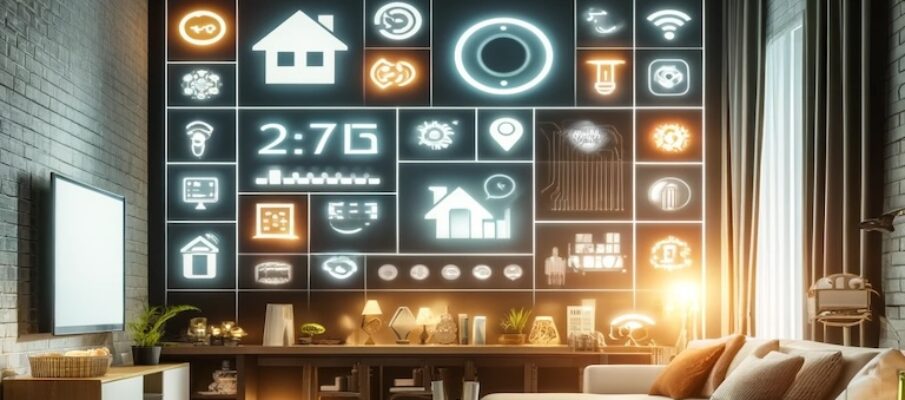Introduction
The Internet of Things (IoT) has revolutionized many aspects of daily life, with home automation standing out as one of the most impactful sectors. This comprehensive guide delves into the latest IoT innovations for home automation, focusing on DIY projects, cost savings, and significant improvements in security. Through integrating IoT devices into the home, homeowners are achieving unparalleled levels of convenience, efficiency, and peace of mind.
The Evolution of Home Automation
Home automation technology has evolved from simple remote-controlled devices to complex ecosystems that manage everything from lighting and temperature to security systems and appliances. The integration of IoT has accelerated this transformation, making smart homes more intuitive and connected than ever before.
Part 1: DIY Projects for Smart Homes
Getting Started with IoT DIY Projects
For enthusiasts looking to personalize their smart home experience, several IoT projects can be undertaken with basic programming skills and standard electronic components.
- Smart Mirrors: Display your daily schedule, weather, and news headlines as you get ready in the morning.
- Irrigation Controllers: Automate your gardening with IoT sensors that monitor soil moisture and weather conditions to water plants only when needed.
Tools and Platforms
- Raspberry Pi and Arduino: These microcontroller platforms are perfect for building custom IoT projects. They support various sensors and modules, making them versatile choices for DIY enthusiasts.
- IFTTT and Home Assistant: Use these services to create custom automation rules and integrate various IoT devices regardless of the manufacturer.
Part 2: Cost Savings Through IoT
Energy Efficiency
One of the most tangible benefits of IoT in home automation is the ability to save on energy costs.
- Smart Thermostats: Devices like the Nest or Ecobee learn your schedule and temperature preferences to optimize heating and cooling schedules, reducing energy usage.
- LED Smart Lights: These lights can be controlled remotely and programmed to switch off automatically when not in use, significantly reducing electricity bills.
Water Conservation
- Smart Leak Detectors: Early detection of leaks can prevent wastage and avoid high water bills. IoT sensors placed at strategic points can alert homeowners in real-time.
Part 3: Enhancing Home Security with IoT
Advanced Security Systems
IoT has significantly improved home security with smart alarms, cameras, and locks that offer better control and real-time monitoring.
- Smart Cameras and Doorbells: Devices like Ring and Arlo provide live streaming of high-definition video, detect motion, and send alerts to homeowners’ phones.
- Smart Locks: Enhance security with smart locks that allow remote management of door access. Grant or revoke entry from anywhere in the world via your smartphone.
Privacy and Security Risks
While IoT devices offer numerous benefits, they also pose new challenges in terms of privacy and security. It is crucial to secure home networks and devices to prevent unauthorized access.
- Secure Network Practices: Use strong, unique passwords for Wi-Fi networks and IoT devices. Consider a separate network for your IoT gadgets to isolate them from other home network traffic.
- Regular Updates and Patches: Keep firmware and software updated to protect against the latest threats.
Future Trends in IoT Home Automation
As technology continues to advance, the potential for home automation seems limitless.
- Integration with Virtual Assistants: Increasing compatibility with assistants like Alexa, Google Assistant, and Siri is making IoT devices more accessible and functional.
- AI and Machine Learning: Future smart homes will likely employ AI to learn homeowner preferences and automate tasks without user input more effectively.
Conclusion
IoT for home automation represents a significant step forward in how we live and interact with our environment. By embracing these technologies, homeowners can enjoy not only enhanced comfort and efficiency but also improved security and cost savings. Whether through DIY projects or commercial products, the benefits of integrating IoT into home life are vast and compelling. As this technology evolves, it will continue to reshape our homes and daily routines, making smarter living not just a possibility but a reality.
